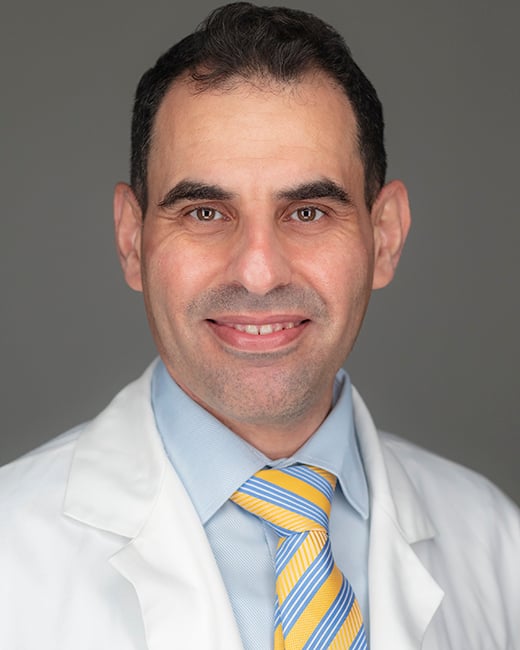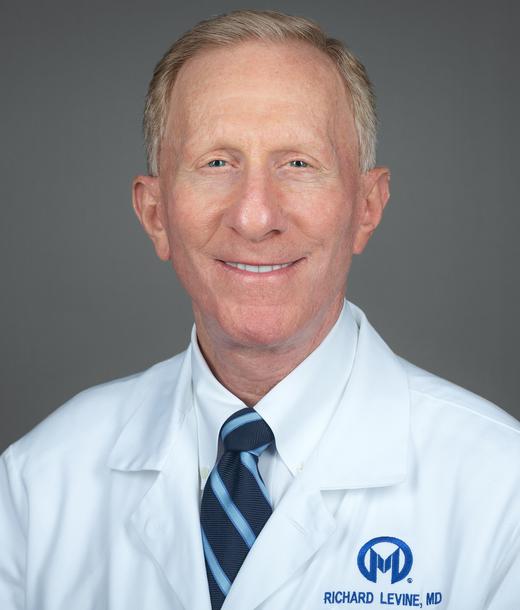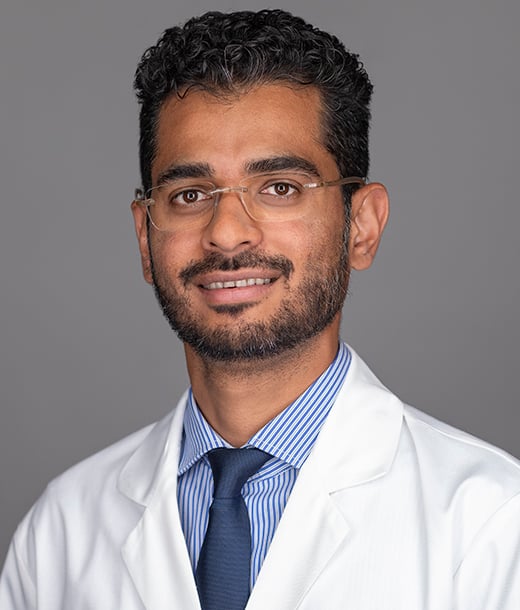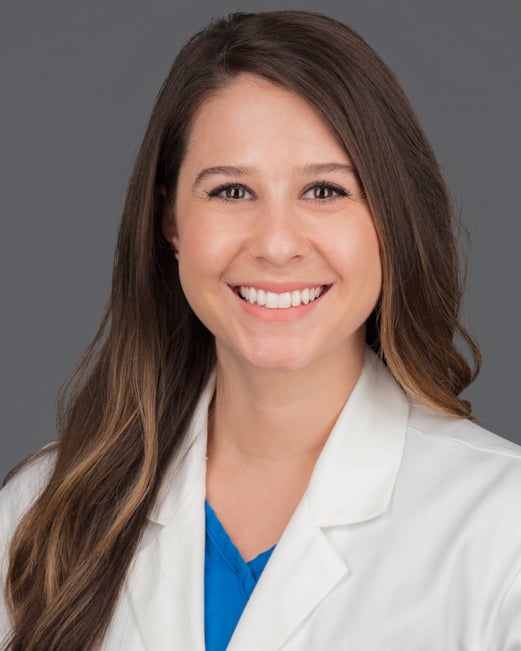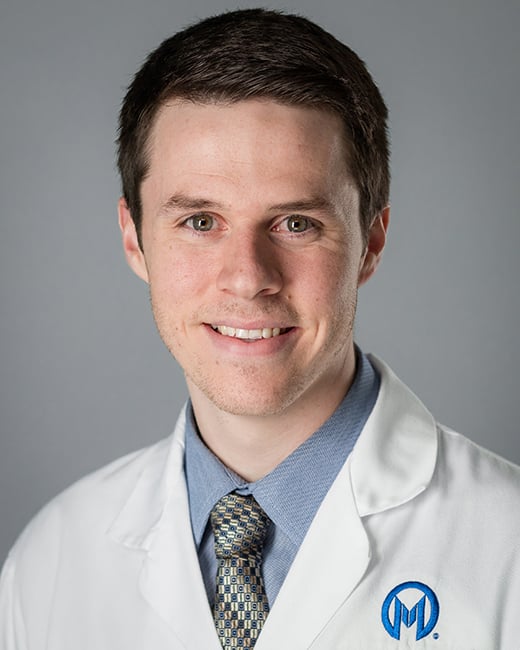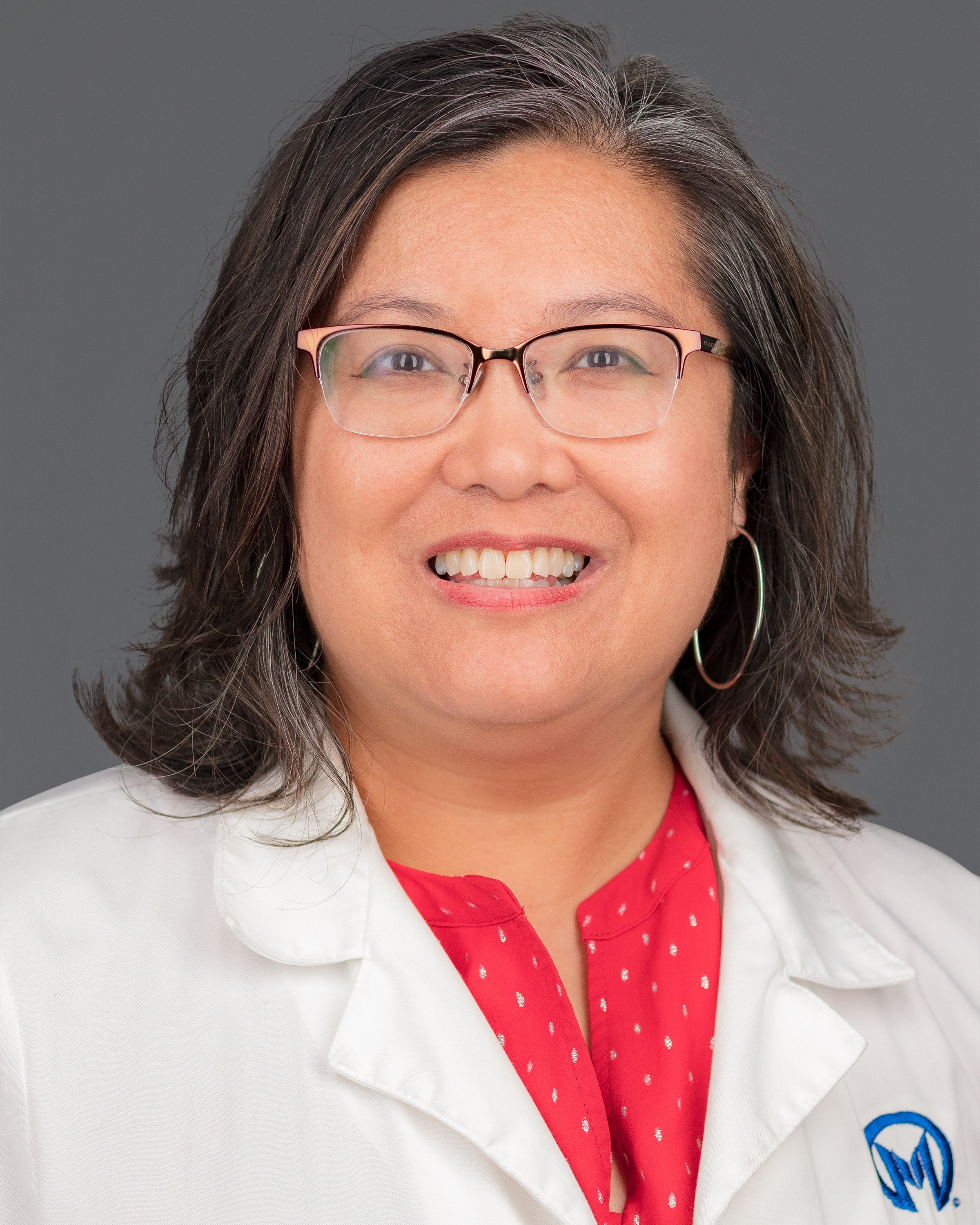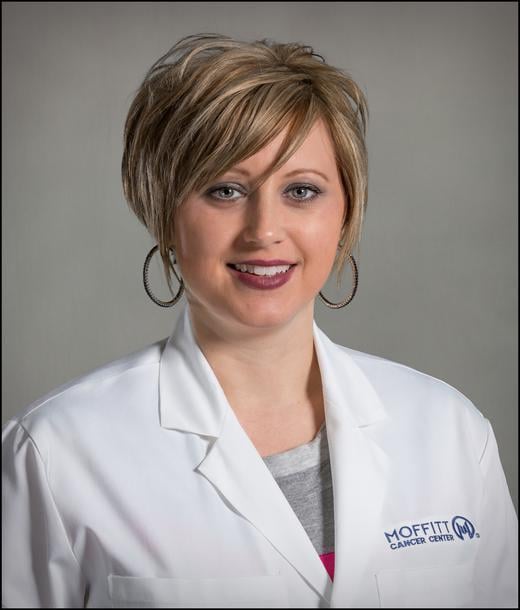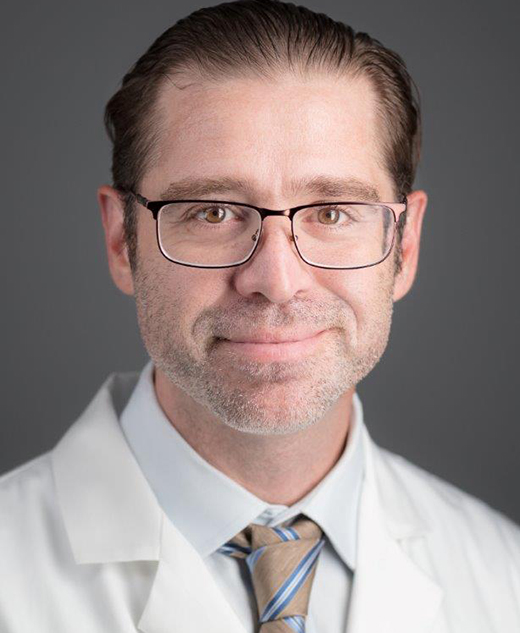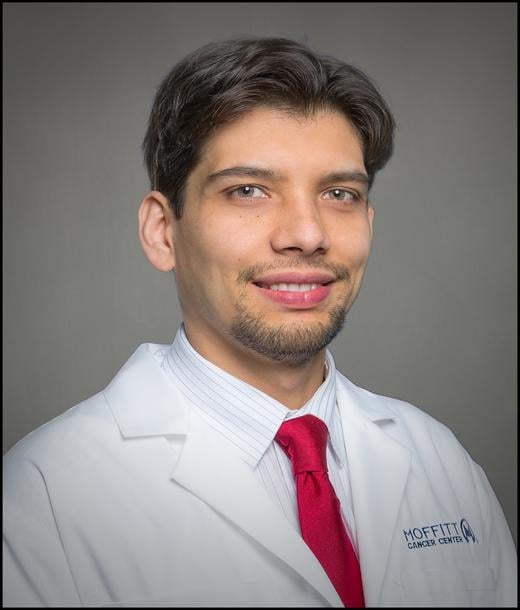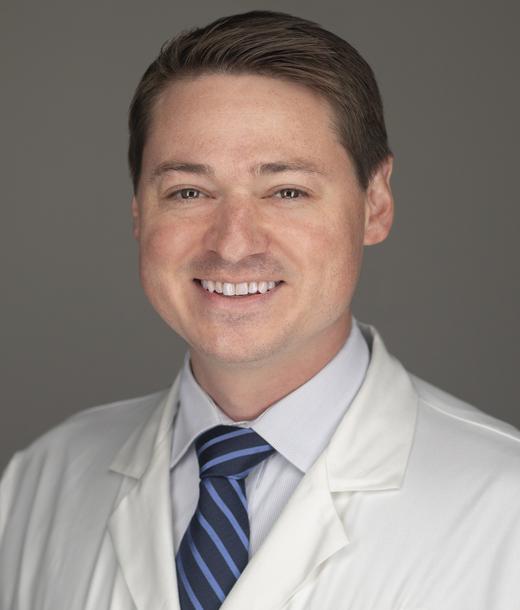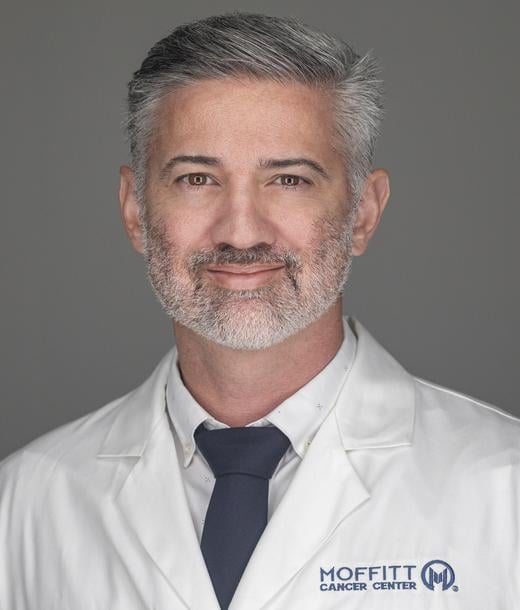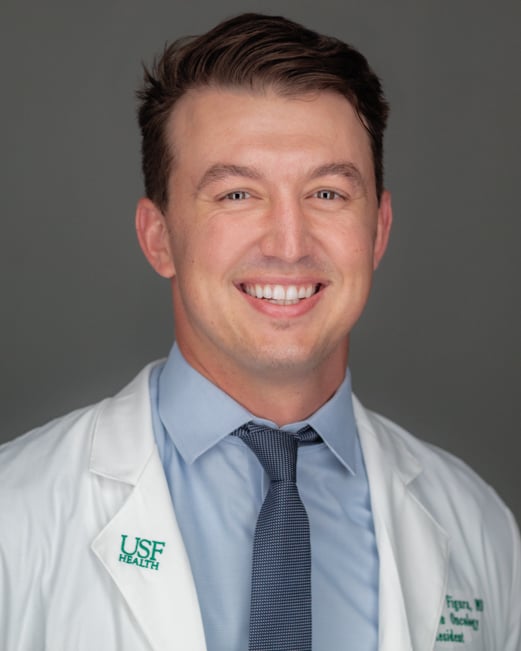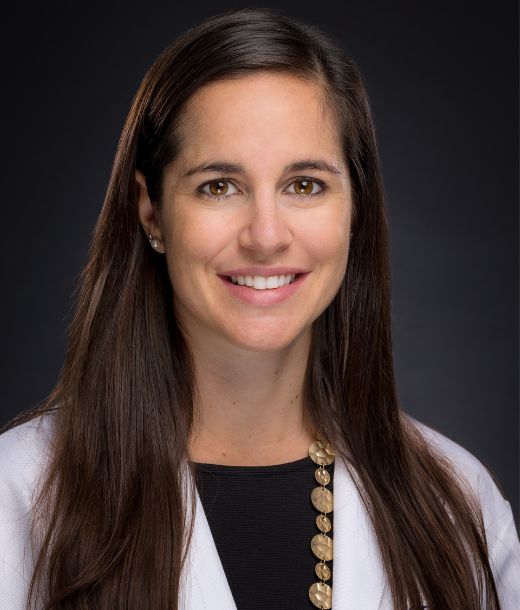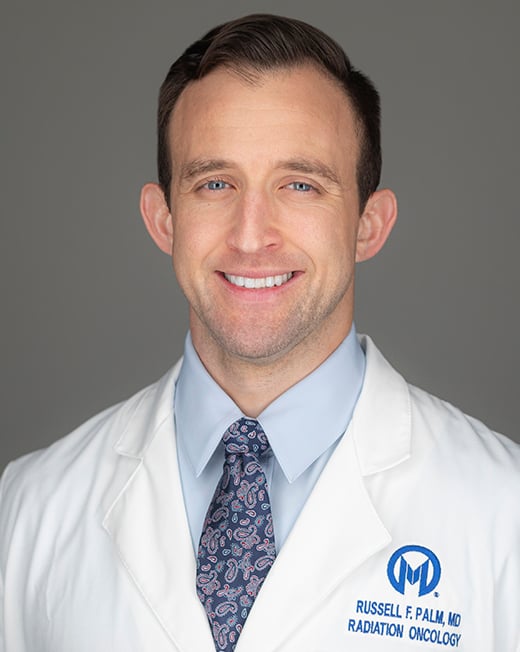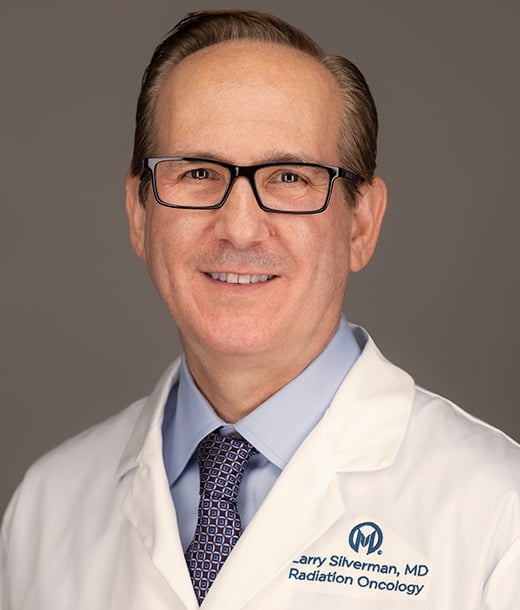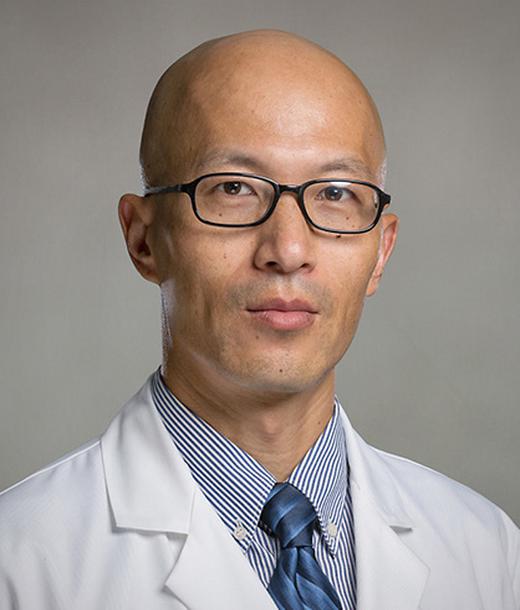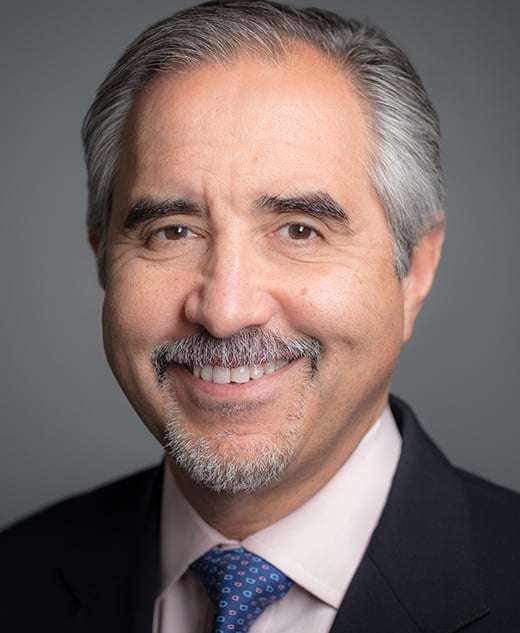Your Esophageal Cancer Specialists
Every esophageal cancer specialist in the Gastrointestinal Oncology Program at Moffitt Cancer Center is a member of a multispecialty tumor board of experts. Our highly experienced team is nationally recognized for its strengths in diagnosing and treating tumors of the esophagus. This is significant because esophageal tumors are relatively rare. At Moffitt, we work closely with each patient to recommend an individualized treatment plan, then continually fine-tune the plan as necessary to ensure that the patient receives the best possible treatment at each phase of his or her cancer journey.

Each esophageal cancer specialist on Moffitt’s team has highly focused expertise in a single area, such as:
- Surgical oncology
- Gastroenterology
- Medical oncology
- Radiation therapy
- Interventional radiology
- Pathology
- Nursing
- Supportive care
By making each esophageal cancer specialist – as well as a comprehensive range of diagnostic, treatment and support services – available in a single location, Moffitt provides a streamlined patient experience. For added convenience, we do not require referrals.
Treatment options for esophageal cancer
So many factors affect the treatment options available for esophageal cancer, such as a patient’s health and past treatment, as well as the extent to which the cancer has spread. That’s why our team ensures that every patient receives an individualized treatment plan.
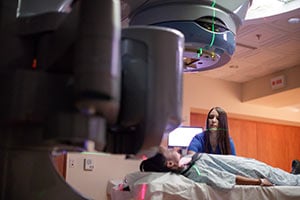
A patient’s treatment plan may include a one or more of the following options, which are further detailed below:
- Radiation therapy
- Chemotherapy
- Targeted therapy
- Immunotherapy
- Endoscopic treatment
- Surgery
Radiation therapy
Radiation therapy involves the use of high-energy rays, like X-rays, to destroy cancer cells. Radiation therapy can be delivered externally by a machine (which is most common for treating esophageal cancer) or internally by placing a radioactive pellet or seed inside the body near the tumor (called “brachytherapy”).
Chemotherapy

Chemotherapy involves using anti-cancer medications that are delivered intravenously or orally. Chemo is given in cycles, with periods of rest in between to allow the body to recover.
Targeted therapy
Targeted therapy is similar to chemotherapy in that it involves using powerful medications; however, it is different from chemotherapy in that it more specifically targets the changes that occur in the body’s cells that cause cancer. For instance, these medications may target a specific protein that helps esophageal cancer grow.
Immunotherapy
Immunotherapy is yet another treatment that involves using medications. These medications, however, are focused on helping the patient’s immune system respond more effectively to the presence of cancerous cells.
Endoscopy
Endoscopy involves the use of an endoscope – a long, hollow, flexible tube with a light and camera on the end, through which an esophageal cancer surgeon can pass small instruments for performing minimally invasive procedures. Endoscopic procedures can be used to remove early-stage esophageal cancers, or to treat conditions such as Barrett’s esophagus that can cause esophageal cancer to develop. A variety of treatments can be delivered using endoscopy, including photodynamic therapy and radiofrequency ablation.
Surgery options for esophageal cancer
Surgery is commonly part of a patient’s main treatment plan if the cancer has not advanced to later stages. Typically, surgery involves removing the tumor, as well as some of the surrounding healthy tissue. Sometimes surgery is done in conjunction with other treatments like chemotherapy or radiation therapy. An esophageal cancer surgeon will consider many factors, such as the patient’s age and overall health, as well as the tumor’s size, location and type, to determine the best option for treatment.
Esophagectomy
In an esophagectomy, a surgeon removes the esophageal cancer, part of the esophagus, some tissue around the cancer and lymph nodes, if necessary. The surgeon then connects the remaining portion of the esophagus to the stomach to rebuild the passageway for food.
Esophagogastrectomy
An esophagogastrectomy is similar to an esophagectomy, as it involves removal of the primary tumor in the esophagus and surrounding tissue, but this procedure also involves removal of the top portion of the stomach when the cancer has spread. In rebuilding the passageway for food, the remaining portion of the esophagus is connected to the remaining portion of the stomach, or it might need to be connected to the small or large intestine.
Robotic surgery
The world-class esophageal cancer surgeons at Moffitt are experienced in the most innovative surgical methods, including robotic-assisted surgery using the da Vinci® Surgical System. Using a 3D visualization system, our surgeons are able to perform highly precise movements using very small instruments. Surgeries using this system are less invasive than traditional open procedures, which in turn can lead to shorter hospital stays and recovery periods, as well as decreased pain and scarring.
Clinical trials and research at Moffitt
As a National Cancer Institute-designated Comprehensive Cancer Center, Moffitt has received nationwide acclaim for its groundbreaking research efforts. As we continually work to improve treatment for all current and future patients who are diagnosed with esophageal cancer, our team also leads clinical trials of promising new treatments. These important studies allow our patients to benefit from novel therapies before those options are made available elsewhere.
As a direct result of our steady gains in improving surgical techniques and post-surgical care, as well as developing more effective chemotherapy and radiation therapy options, Moffitt’s patient outcomes and quality of life are continually improving. We remain steadfastly committed to one day finding a cure.
If you’d like to review your options with an esophageal cancer surgeon or specialist at Moffitt Cancer Center, you can call 1-888-663-3488 to schedule an appointment or complete a new patient registration form online.
-
Gastrointestinal Oncology Leadership
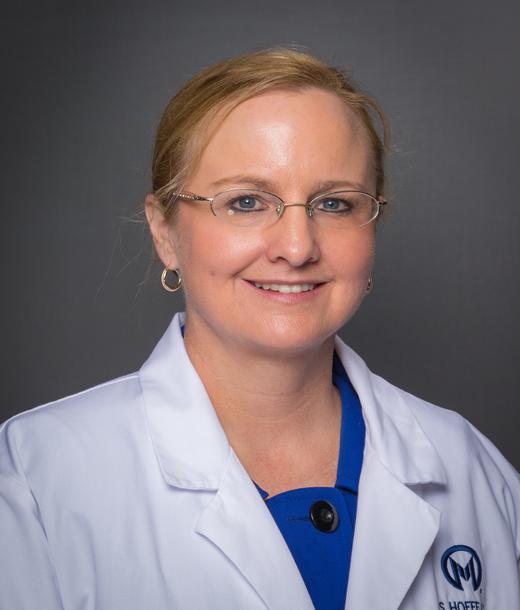
Program
Radiation Oncology
Title
Interim Chair, Department of Gastrointestinal Oncology
Specialty
Radiation Oncology
4.9 (135)
-
Esophageal Cancer Medical Oncologists
Meet the medical oncologists who specialize in the treatment of esophageal cancer.
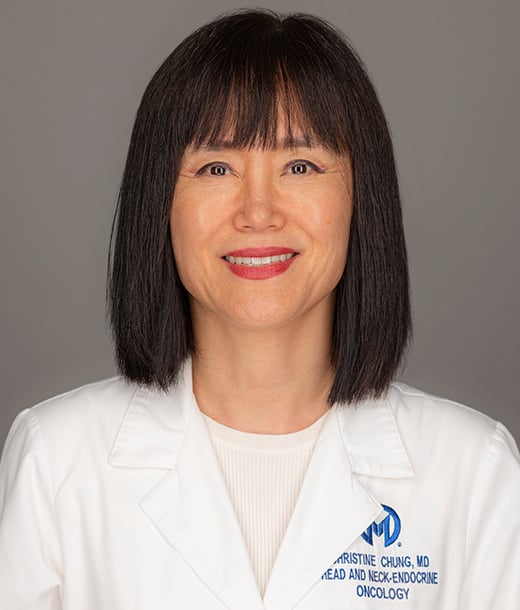 Department Chair, Head and Neck-Endocrine OncologyProgram Lead, Head and Neck Oncology
Department Chair, Head and Neck-Endocrine OncologyProgram Lead, Head and Neck OncologyProgram
Head and Neck Oncology
Title
Chair, Department of Head and Neck-Endocrine Oncology; Program Leader of Head and Neck Oncology
Specialty
Medical Oncology
4.9 (133)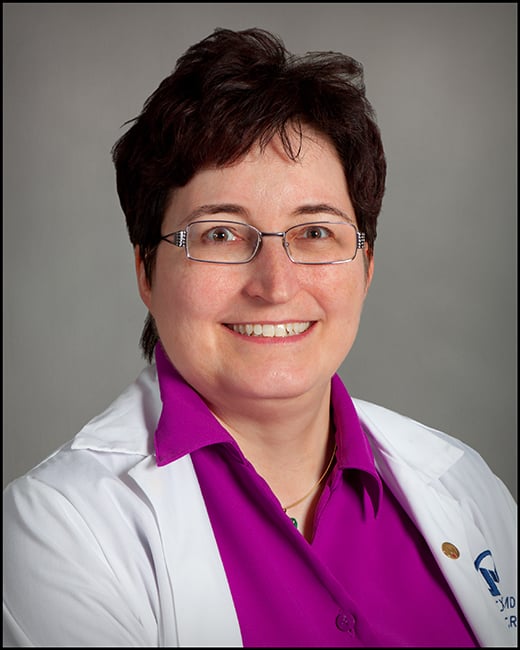 Program Lead, Senior Adult Oncology
Program Lead, Senior Adult OncologyProgram
Senior Adult Oncology
Title
Program Leader, Senior Adult Oncology Program
Specialty
Medical Oncology
4.9 (220)
-
Esophageal Cancer Head and Neck Surgeons
Meet the head and neck surgeons who specialize in treating esophageal cancer.

Program
Head and Neck Oncology
Title
Vice Chair of Clinical Operations in the Department of Head and Neck-Endocrine Oncology
Specialty
Head and Neck Surgery
4.9 (122)
-
Esophageal Cancer Surgeons
Meet the surgeons who specialize in the treatment of esophageal cancer.
-
Esophageal Cancer Radiation Oncologists
Meet the radiation oncologists who specialize in the treatment of esophageal cancer.

Program
Radiation Oncology
Title
Interim Chair, Department of Gastrointestinal Oncology
Specialty
Radiation Oncology
4.9 (135)
-
Esophageal Cancer Pathologists
Meet the pathologists who specialize in diagnosing esophageal cancer.
-
Esophageal Cancer Interventional Radiologists
Meet the interventional radiologists who specialize in diagnosing esophageal cancer.
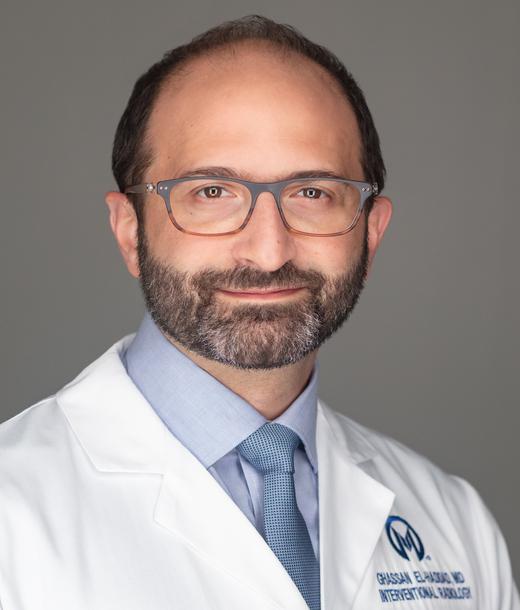
Program
Diagnostic Imaging and Interventional Radiology
Specialty
Interventional Radiology

